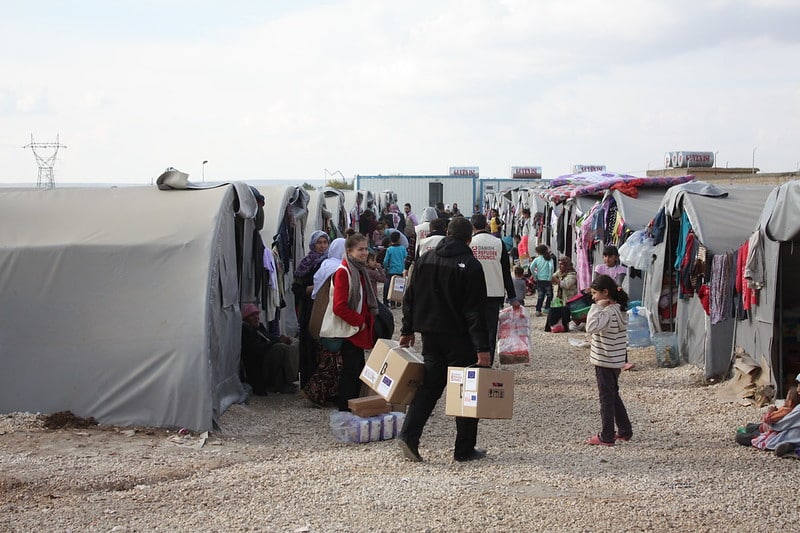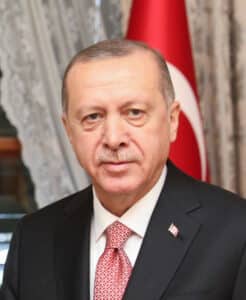Syrian refugees in a Turkish refugee camp near Suruc, back in 2014 (photo: Flickr)
For years, Turkey has held the largest population of refugees in the world, making the country the main partner for EU migration policies. However, the approximately four million refugees, of whom 3.6 million Syrians, now face domestic backlash as the Turkish economy falters and unemployment rises. Turkish main opposition party CHP has now said that he would return Syrian refugees to their homeland within two years if he would take power.
Changing mood toward Syrian refugees
Lately, the attitude in Turkey towards Syrian refugees appears to have changed. There are several reports of Syrian refugees being murdered, next to attacks on Syrian-owned shops and properties. Also, in various regions, demonstrations have been organized against the presence of Syrian refugees.
Most of the Syrian refugees live across Turkey, employed in the informal economy for well under average payments. Only 50,000 live in organized refugee camps. They are accused by Turkish workers of driving down wages amid socio-economic difficulties due to skyrocketing inflation in the country. Unemployment in Turkey rose to fourteen percent in 2021, up from ten percent in 2016.
CHP party adds pressure
With elections coming up in Turkey in 2023, observers worry that refugees might become an easy target for politicians.
Kemal Kılıçdaroğlu, head of the biggest opposition party CHP, says all Syrian refugees will return ‘voluntarily’. If he would be in power, he would make a deal with Syria’s President Bashar al-Assad. Many rights groups have expressed grave concern, as the situation in Syria for many who wish to return is still far from safe.
At first, Erdogan has said in response to Kılıçdaroğlu that Turkey “will protect up to the end these brothers who fled the war and took refuge in our country. We will never expel them from this land. Our door is wide open to them. We will continue to host them. We will not throw them into the lap of murderers.”
However, Turkey’s far-right parties have shifted the rhetoric and Erdogan has come under pressure. Last week he said that his government will build 100,000 homes in northern Syria, where refugees could return “voluntarily” as well. The first reports have already been made on how refugees were coerced into signing papers and documents that confirmed their return.
The questionable role of the EU
Meanwhile, the EU remains silent. The €6bn that was pledged during the original migration deal in 2016 has been far from enough for Turkey to handle its migration flows correctly. The Erdogan government has said it would even need up to €32bn. For Europe, shifting the migration “troubles” to external borders and regions was convenient, but the bloc has arguably become oblivious to the effects of the large migration influx on partner countries’ societies. To start, it is crucial that the EU provides more support to the Turkish government – through words and deeds.
Sources: Al Monitor I Middle East Eye Bianet Al Monitor II Financial Times
Photo: Flickr



